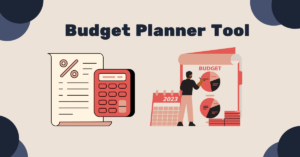Are you tired of feeling like saving money means giving up the things you love?
You’re not alone. Many people struggle to balance financial planning with enjoying life. But what if I told you there’s a way to save money without deprivation? That’s where mindful budgeting comes in.
In this guide, we’ll explore how you can take control of your finances with practical tips that leave room for joy and fulfillment. By the end, you’ll have a clear path to achieving your financial goals without feeling like you’re missing out. Let’s dive in!
What Is Mindful Budgeting?
Mindful budgeting is more than just tracking expenses—it’s about aligning your spending habits with your values and priorities. It emphasizes intentional decision-making, helping you identify what truly matters so you can allocate resources effectively.
Instead of rigid constraints, mindful budgeting creates a sustainable approach to saving money by focusing on your unique needs and lifestyle.
Why Mindful Budgeting Works
Emotional Awareness: Recognize spending triggers to avoid impulse purchases.
Values-Driven Choices: Spend on what brings genuine happiness.
Financial Clarity: Gain a clear picture of your income and expenses.
“A budget is telling your money where to go instead of wondering where it went.” – Dave Ramsey

10 Tips to Save Money with Mindful Budgeting
1. Track Your Spending Habits
Start by reviewing your past three months of expenses. Identify patterns and categorize your spending. Use tools like Mint or YNAB to simplify this process.
Bonus Tip: Keep a daily spending journal for added awareness.
2. Set Clear Financial Goals
Define what you’re saving for. Whether it’s an emergency fund, a dream vacation, or early retirement, clear goals give your budget purpose.
3. Embrace the 50/30/20 Rule
Allocate your income as follows:
50% for needs (housing, utilities, groceries)
30% for wants (entertainment, dining out)
20% for savings and debt repayment
This simple formula helps maintain balance.
4. Automate Your Savings
Set up automatic transfers to your savings account on payday. By treating savings as a non-negotiable expense, you’ll build wealth effortlessly.
5. Practice Conscious Spending
Before making a purchase, ask yourself:
Do I need this?
Will it add long-term value to my life?
Is it worth delaying my financial goals?

6. Cut Back Without Sacrificing Joy
Look for small ways to save money without feeling deprived:
Brew coffee at home instead of buying it daily.
Host potluck dinners instead of dining out.
Use streaming services instead of cable.
7. Negotiate Bills and Subscriptions
Call your service providers to negotiate lower rates on utilities, insurance, or subscriptions. Many companies offer discounts to retain loyal customers.
8. Shop Smart
Use cashback apps like Rakuten or Honey.
Buy in bulk for non-perishable items.
Take advantage of seasonal sales.
9. Build an Emergency Fund
Aim for 3-6 months of living expenses in a separate, easily accessible account. This safety net prevents financial stress during unexpected events.
10. Reward Yourself Wisely
Celebrate financial milestones. Treat yourself to something meaningful, like a special dinner or a day trip, to stay motivated.
Benefits of Mindful Budgeting
Reduced Stress: Gain confidence in your financial future.
More Savings: Prioritize essential spending and eliminate waste.
Improved Relationships: Align financial goals with loved ones.
“The quickest way to double your money is to fold it in half and put it back in your pocket.” – Will Rogers
FAQs: Mindful Budgeting to Save Money
1. What is the difference between mindful budgeting and traditional budgeting? Mindful budgeting focuses on aligning spending with personal values, while traditional budgeting often emphasizes rigid cost-cutting.
2. How can I stay consistent with mindful budgeting? Review your budget monthly, set reminders, and celebrate small wins to maintain momentum.
3. Can mindful budgeting help with debt repayment? Yes! By prioritizing high-interest debts and allocating resources intentionally, you can pay off debt faster.
4. Is mindful budgeting suitable for low-income households? Absolutely. Mindful budgeting helps stretch every dollar by focusing on essentials and eliminating unnecessary expenses.
5. What tools can I use for mindful budgeting? Apps like Mint, YNAB, and PocketGuard can simplify tracking and goal setting.



